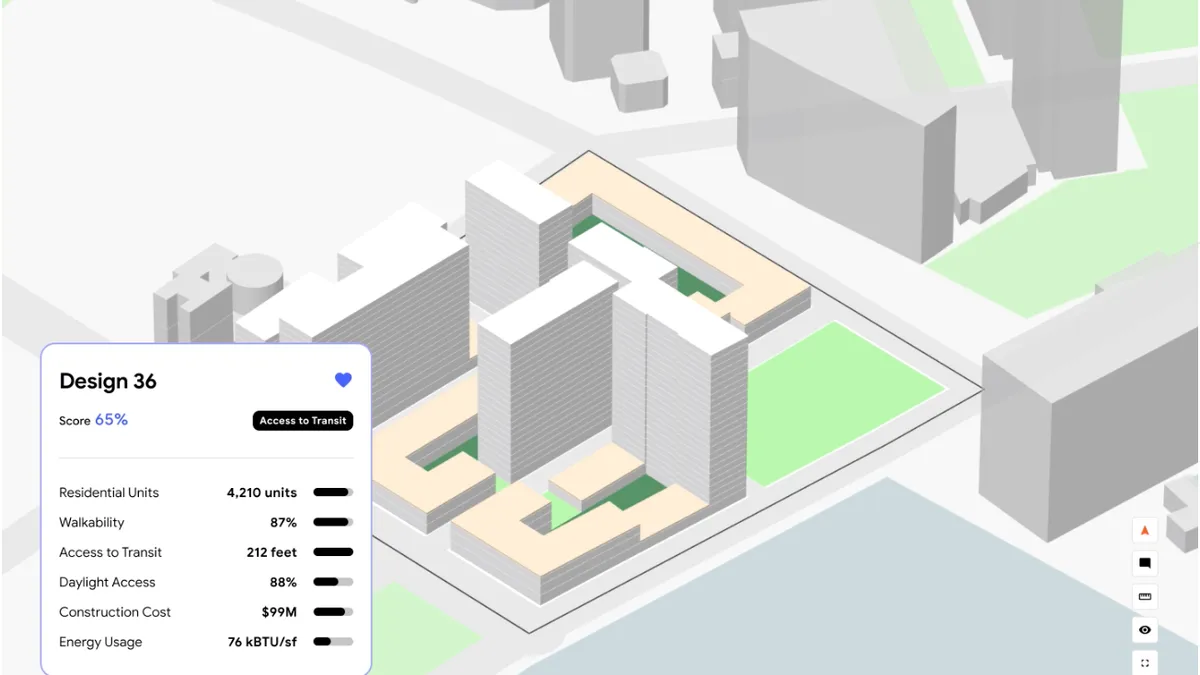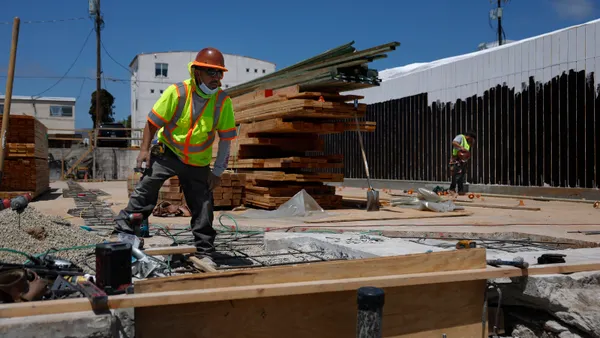Dive Brief:
- Sidewalk Labs this week announced Delve, a generative design tool that was created to help developers, architects and planners identify the optimal design plans for an urban project.
- The tool uses machine learning to explore an abundance of design possibilities that meet the unique criteria of any given project. Delve users can identify planning inputs (the paramaters of the project), site constraints (such as zoning regulations) and priority outcomes for development, enabling the tool to generate a batch of design options that meet a project's economic and quality-of-life needs. Users can then update this information to continually adjust the design options as the project development evolves.
- Delve touts a number of "core features" including integrated financial models, a built-in utility demand tool and a ranking system of the generated design plans. Delve also ensures "high-fidelity designs" that account for elements including daylight and open space access, walkability and views.
Dive Insight:
The prototype of this tool was first unveiled in December 2019 before being fine-tuned into the Delve product announced this week. Delve Director Okalo Ikhena told Smart Cities Dive the integrative tool is intended to "bridge the spatial components of development with the financial dependency on the development as well."
Ahead of this launch, UK-based developer Quintain utilized Delve to inform its work on a Wembley Park development project in the London Borough of Brent. Delve generated over 40,000 design options for this project by the final week of engagement, all while "respecting the rules of the game and on targets that we set," said Jason Margrave, Quintain's executive director of development, in a statement.
This concept behind the Delve tool — utilizing available technology to enhance a traditionally arduous development process — is not necessarily new, and competes with products from companies including Esri and UrbanFootprint. Yet, Ikhena said Sidewalk Labs is at the beginning of a "realization" regarding how the use of technology can be pushed even further to optimize development while empowering developers.
Ikhena said his team plans to continually refine and improve the tool, particularly to build community engagement around projects. Community members can help to share information that can better define the "quality-of-life" expectations in a certain region, he said.
"We do not have the universal definition about what this 'quality-of-life' means as you go from city to city," Ikhena said. "It adds a lot of value to making this become configurable or customizable ... This is how you plug that gap, giving communities the tools [to] share that definition."
Delve was unveiled on the heels of Sidewalk Labs' tool Mesa, announced last month, which uses real-time data and automation to manage and reduce building energy use. Ikhena did not share comment on if these products were part of a bigger toolkit offering to come from Sidewalk Labs, but they do indicate that Sidewalk Labs is staying active in its work with cities despite its May exit from the Toronto Quayside project.












